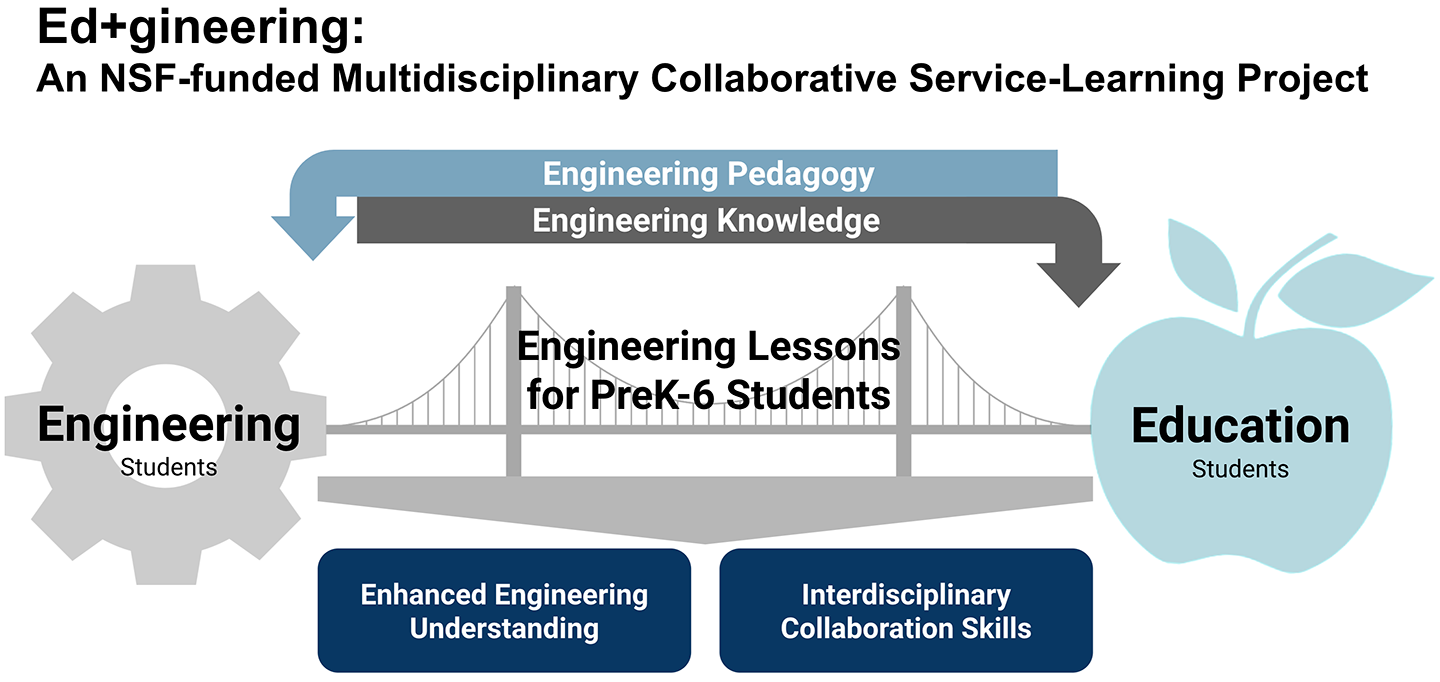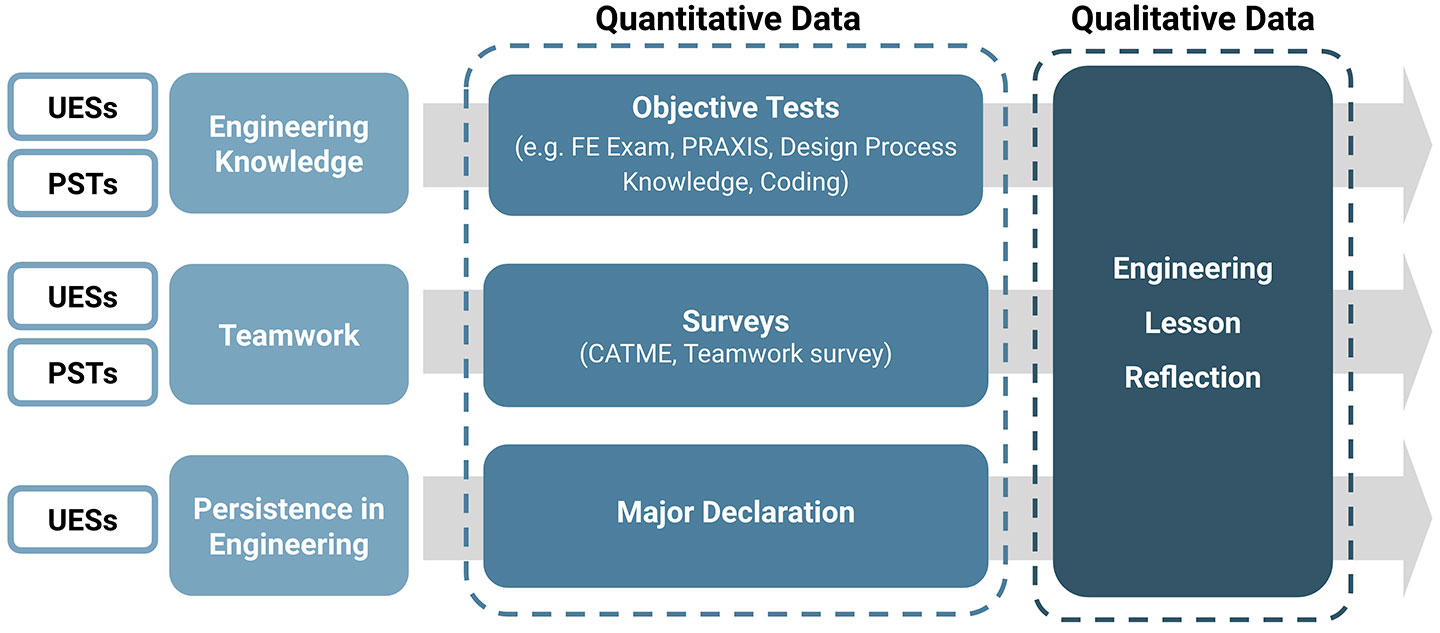
The National Science Foundation’s Improving Undergraduate STEM Education (IUSE) initiative seeks to promote novel, creative, and transformative approaches to generating and using new knowledge about STEM teaching and learning to improve STEM education for undergraduate students.
Compelling Needs
- Increase academic persistence (retention) and professional persistence in engineering students
- Prepare engineers and educators for workplace demands of collaborating and communicating in multi-disciplinary contexts
- Prepare elementary teachers to feel confident and comfortable integrating engineering into instruction
Project Goals
- Increase academic persistence in first year engineering students
- Increase professional persistence in upper level engineering students
- Enhance collaboration skills for engineering and education students
- Enhance engineering knowledge of engineering students
- Enhance engineering knowledge of education students
Ed+gineering engages engineering and education students in a project-based service-learning experience to plan and teach engineering lessons to elementary school students. The process of breaking down engineering concepts in order to teach them to elementary students helps reinforce the engineering knowledge of both groups of undergraduate students while enhancing their communication and collaboration skills.

Research Questions
To what extent does the Ed+gineering project …
- Affect engineering students’ understanding of engineering concepts? gender and ethnicity differences?
- Affect engineering and science knowledge of pre-service teachers? gender and ethnicity differences?
- Affect the collaboration skills of both engineers and pre-service teachers? gender and ethnicity differences?
- Increase Freshmen students’ academic persistence (retention) in engineering? gender and ethnicity differences?
- Increase students’ professional persistence in engineering? gender and ethnicity differences?
The mixed method research study triangulates quantitative (objective tests and surveys) and qualitative (student reflections) to compare the science and engineering knowledge and teamwork skills of participants and non-participants.

